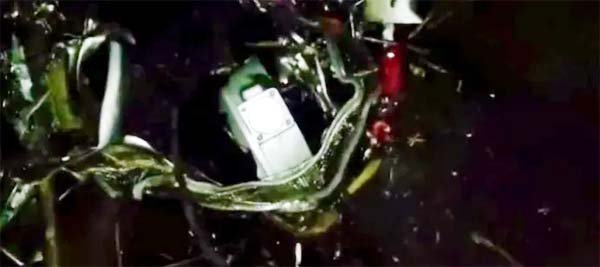New Delhi, Nov 13 (UNI) The Supreme Court on Thursday held that a subsequent discovery of damage or corrosion cannot be a valid ground for rejecting an insurance claim, as doing so would defeat the very purpose of an insurance contract.
A Bench comprising Justice P.S. Narasimha and Justice Manoj Misra delivered the ruling while allowing the insurance claim of a sugar factory whose boiler had exploded, rejecting the insurer’s contention that it was not liable since the defect in the boiler was discovered only after the issuance of the policy.
“A subsequent discovery of damage or corrosion cannot be a ground to repudiate an insurance claim, as it would defeat the very purpose of the insurance contract,” the Bench observed.
The Court criticised the National Insurance Co. Ltd. for attempting to evade liability based on defects discovered post-accident, holding that the insurer could not benefit from its own failure to conduct due diligence before issuing the policy.
“It is expected that an insurer would accept a proposal of insurance on being satisfied with the condition of the subject matter of insurance. Otherwise, the purpose of insurance to tide over the financial implications of an unforeseen event such as an accident, would stand frustrated,” the judgment stated.
The case arose from a boiler explosion at the appellant’s sugar factory on May 12, 2005. The boiler, insured for Rs 1.60 crore under a Boiler and Pressure Plant Policy issued by National Insurance Co., saw its claim repudiated under Exclusion Clause 5, which excluded damage from corrosion or wear unless it caused an explosion.
While the Maharashtra State Consumer Commission in 2012 awarded ₹49 lakh to the factory for deficiency in service, the National Consumer Disputes Redressal Commission (NCDRC) in 2020 reversed that decision, siding with the insurer.
Setting aside the NCDRC’s order, Justice Misra, who authored the judgment, held that the insurer’s objection was an afterthought and that a latent defect discovered only after an explosion could not be used to deny indemnification.
The Court emphasised that unless there is fraudulent suppression or misrepresentation by the insured, the insurer cannot rely on hidden defects found later to avoid its obligations.
“The mere discovery of corrosion on underlying parts during a survey is not conclusive to hold that there was an infraction of the duty of fair disclosure.
Those underlying parts became visible only because the tubes slipped off due to the explosion,” the Court observed.
The Bench also noted that there was no evidence to show that the insured had prevented inspection or submitted false data, observing that the insurer appeared “interested in somehow defeating the claim of the appellant not on facts but on pleas taken as an afterthought.”
Reiterating the limited grounds on which insurers can repudiate claims, the Court held that only if the insurer proves that the insured failed to disclose a material fact rendering the contract voidable, or if the terms of the contract explicitly exclude such claims.
Since neither condition was satisfied, the Supreme Court allowed the appeal and restored the matter to the NCDRC for the computation of the compensation payable to the appellant.











